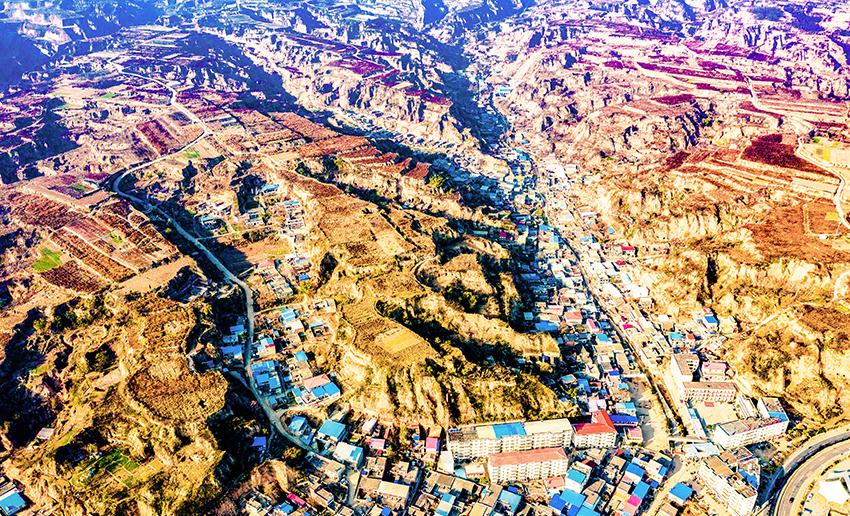
There is a Liquan Village in Kangdian Town, Gongyi City, Henan Province, where more than 700 families all live in the 8 ditches of The Ridge, and nearly 4,000 mu of land are on the ridge. Since 2018, the village has built 3 roads that run through the ditches and forks on the ridge. After the land circulation, the spring bald ridge becomes a sea of flowers.
Liquan Village came out of a founding major general named Qu Jingji. He joined the Eighth Route Army in 1938, promoted from a soldier to a battalion deputy instructor, unit chief, battalion instructor, deputy political commissar of the detachment, and director of the regimental political office, and participated in many anti-sweeping and "Hundred Regiments War" and other battles. During the Liberation War, he successively served as director of the regimental political office, regimental political commissar, regimental commander, and division chief of staff, and participated in the battles of Suiyuan, Datong, Zhangjiakou, Shijiazhuang, Xinbaoan, Taiyuan, and the march into the great northwest. After the founding of New China, he successively served as deputy division commander, political commissar, deputy director of the military political department, deputy director of the political department of the corps, director of the political department of the brigade garrison area, military political commissar, deputy political commissar and director of the political department of the Beijing Military Region, participated in the battles of MaLiangshan and GaoWangshan, and participated in the War to Resist US Aggression and Aid Korea.
This is the old mansion where General Qu was born, built during the Tongzhi period, on the mountainside of Qiuling, and is now relatively well preserved.
When General Qu returned to his hometown in 2004, he took a family portrait with his nephew Qu Wanghe and his family.
One day in August 1975, General Qu returned to his hometown to visit his home, which the villagers will never forget. On this day, more than 20 villagers who were picking cotton under the cliff saw that General Qu had returned and rushed to meet him. As soon as the people left, the earth cliff suddenly collapsed, burying all the fields full of cotton stalks under the loess.
Nowadays, the mountains have changed greatly, and many picking gardens and science parks have been built on the mountains.
The villagers raised more than 3,000 large white geese under the apple trees on the Ridge to develop the forest economy and help farmers increase their income.
There were originally more than 800 holes in the earthen caves in the village, and now they are basically all abandoned. The sister-in-law cooked pig food in a pot, and the old kiln yard was turned into a pig farm.
A small shop was built in the fork of the Lingling Ditch, and the aunt sat in front of the door very happy.
The village group built a cement road, and the villagers can travel easily.
The road is at the bottom of the ditch, and the villagers live in the middle of the ridge. Several families walked down the same road down the mountain, living in harmony and harmony.
The primary school students in the village are exercising on the playground, innocent and lively.
New Year's goods selling, sausages hanging on the street, the New Year's flavor is really strong!
The Liquan people live on the Lingling Mountains, with the Iloilo River flowing at their feet, looking at the new downtown area of Gongyi, which has become the back garden of the city. (Wang Tianding Photo/Text)